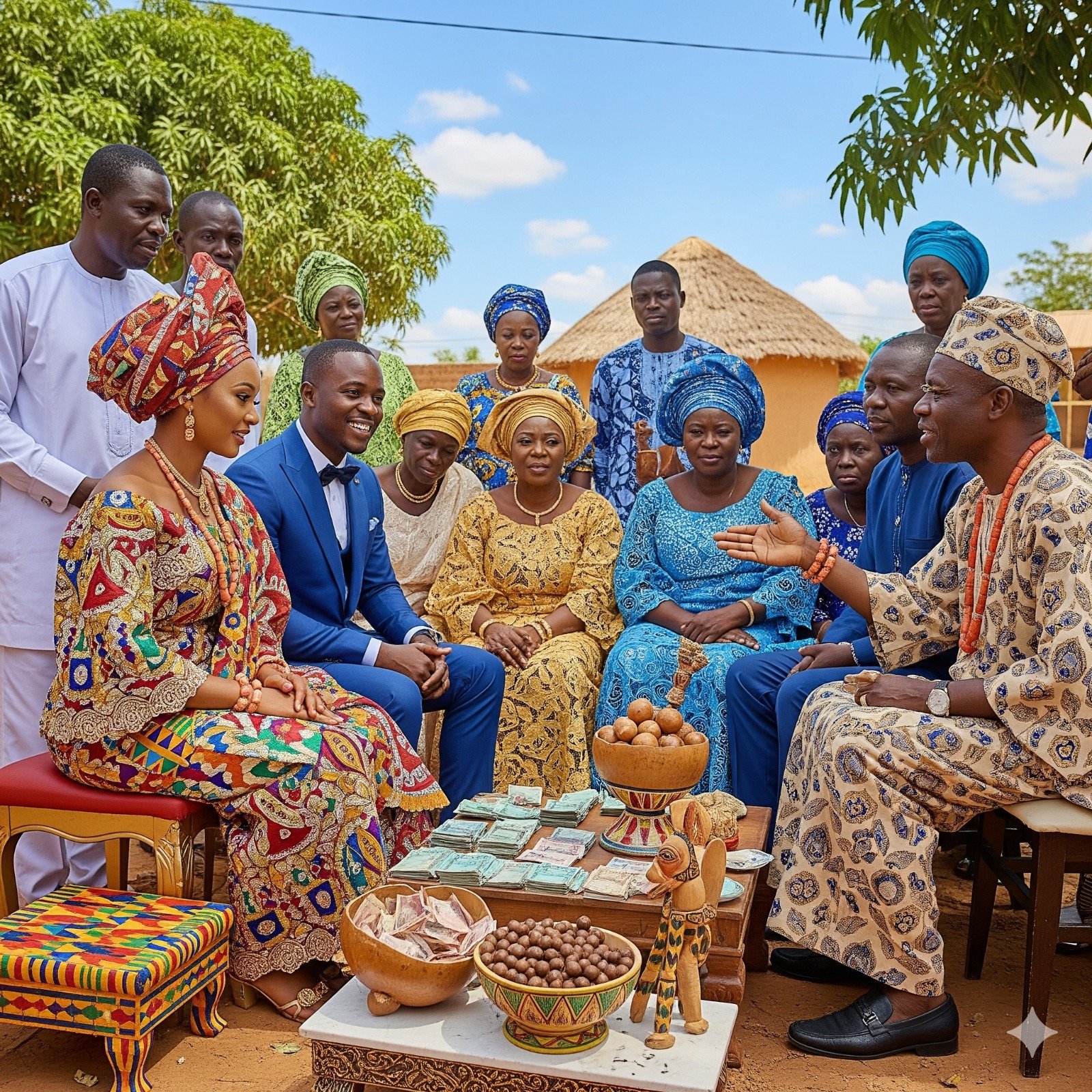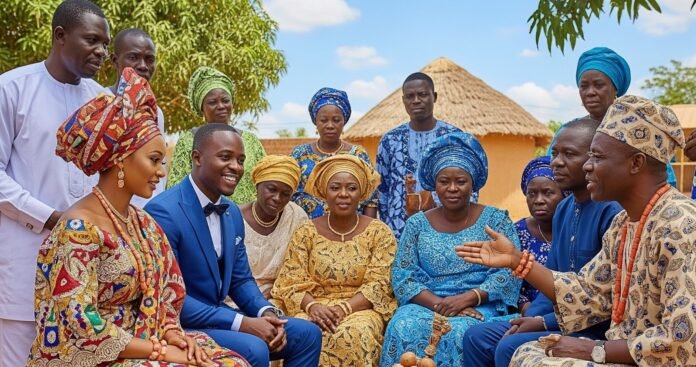Source: Africa Publicity
Introduction
Marriage in Africa is not just the union of two individuals; it is a bond between families, communities, and even generations. Central to this union in many cultures is the practice of bride price — a payment of money, livestock, or goods from the groom’s family to the bride’s family. For centuries, it symbolized appreciation and respect. But in modern times, the meaning of bride price is being hotly debated. Is it still a cherished tradition, or has it devolved into a transactional practice that commodifies women?
Historical and Cultural Roots
Bride price has deep roots in African societies. Among the Zulu of South Africa, the lobola system traditionally involved cattle given as a gesture of goodwill and alliance-building. Among the Akan of Ghana, gifts of drinks and money formed part of the marriage negotiation. For the Igbo in Nigeria, bride price symbolized the joining of lineages, with the groom showing he could support his wife.
Originally, bride price was never meant to “buy” a wife. It was a ritual of appreciation and a symbolic contract between families. The gifts were seen as blessings, fostering respect and harmony between in-laws.

The Changing Face of Bride Price
Today, however, the practice is changing — and not always for the better. In some communities, the amounts demanded have skyrocketed. Lists for bride price may include cash, electronics, expensive fabrics, and even cars. In Uganda, for instance, debates around whether high bride prices exploit grooms and commodify brides have led to legal reforms.
Young couples often find themselves financially burdened before marriage even begins. In Ghana and Nigeria, some men delay or abandon marriage altogether because they cannot meet the financial demands. What was once symbolic is increasingly viewed as transactional.
The Case For Bride Price
Defenders of the practice argue that it remains an important cultural marker. Bride price ensures families are involved in marriages, making unions communal rather than individualistic. It also affirms the value of women and signals a man’s seriousness and commitment. In some cultures, bride price is refundable if the marriage ends, offering families a measure of accountability.
Many elders stress that when practiced modestly, bride price strengthens cultural identity and binds families in lasting respect.
The Case Against Bride Price
Critics argue that bride price perpetuates harmful gender norms. By framing women as commodities, it reinforces the idea that men “own” their wives. This mindset can fuel domestic violence and limit women’s autonomy.
Women’s rights activists also highlight cases where high bride prices trap women in abusive marriages — families refuse to return bride price payments, making divorce socially and financially difficult. In such situations, what was meant as respect becomes a barrier to freedom.
Economically, inflated bride prices exclude poorer men from marriage, destabilizing families and reinforcing inequality.
Counterpoint: The Middle Ground
Not all practices of bride price are exploitative. In many rural communities, symbolic tokens like kola nuts, cloth, or a modest sum of money are still common. The issue, then, may not be the tradition itself but its commercialization in urban, materialistic contexts. Reform may be a better path than outright abolition.
Modern Shifts and Adaptations
Some communities are rethinking bride price. Couples negotiate smaller, symbolic amounts. In certain churches and mosques, religious leaders advocate simplified marriage rites that emphasize spirituality over financial burden. Diaspora Africans often blend cultural traditions with modern sensibilities, reducing bride price to token gestures while still honoring heritage.
There is also a growing call for transparency and dialogue. Families are encouraged to discuss expectations openly rather than springing impossible demands at the last minute.
Why This Debate Matters
The bride price debate is not trivial — it reflects broader questions about gender equality, cultural preservation, and modern identity. How Africa navigates this issue will determine whether marriage remains a burden or a blessing for young couples.
For millennials and Gen Z Africans, the challenge is balancing cultural respect with fairness and equality. Tradition must evolve, but not vanish. Bride price, practiced responsibly, can remain a cultural treasure. Practiced exploitatively, it risks undermining the very marriages it was designed to protect.
Conclusion
Bride price in Africa sits at a crossroads. It is both cherished heritage and potential harm, depending on how it is practiced. The way forward is not to abandon it entirely but to restore its symbolic essence — a gesture of respect and unity, not a transaction.
As Africa modernizes, traditions like bride price must adapt to reflect dignity, equality, and practicality. In the end, the value of a woman cannot be measured in cattle or cash. Her worth is infinite, and any cultural practice must affirm, not diminish, that truth.
References
UNICEF (2021). Child Marriage and Bride Price in Sub-Saharan Africa.
BBC Africa (2022). “Bride Price Debate: Tradition or Exploitation?”
Quartz Africa (2023). “Millennials Rethink Bride Price in Africa.”
African Studies Review (2020). Marriage Practices in Contemporary Africa.
Daily Nation (Kenya, 2021). “Uganda’s Bride Price Reforms Spark Debate.”








